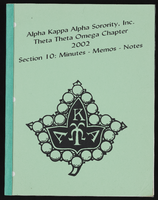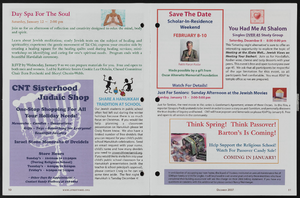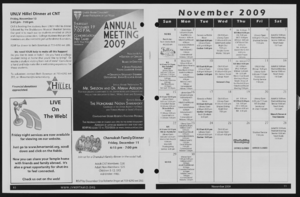Search the Special Collections and Archives Portal
Search Results

Interview with Lewis Gibson Miller, September 14, 2005
Date
2005-09-14
Archival Collection
Description
Narrator affiliation: Engineer, Reynolds Electrical and Engineering Company (REECo)
Text

Interview with David Alan Buer, August 9, 2006
Date
2006-08-09
Archival Collection
Description
Narrator affiliation: Nevada Desert Experience Staff
Text

Interview with Lawrence Crooks, July 21, 2004
Date
2004-07-21
Archival Collection
Description
Narrator affiliation: Design Engineer; NTS Resident Manager, Lawrence Livermore Laboratory
Text

Interview with Ian Dominic Zabarte, April 4, 2007
Date
2007-04-04
Archival Collection
Description
Narrator affiliation: Western Shoshone Property Owner under Treaty
Access note: Audio temporarily sealed. May not quote in any form without written permission from interviewee
Access note: Audio temporarily sealed. May not quote in any form without written permission from interviewee
Text

Interview with Elmer Jesse Sowder, July 29, 2005
Date
2005-07-29
Archival Collection
Description
Narrator affiliation: Test Director, Los Alamos National Laboratory
Access note: Audio temporarily sealed
Access note: Audio temporarily sealed
Text
Minutes from Temple Beth Sholom Board of Directors meetings, January 1957 - April 1963
Date
1957 to 1963
Archival Collection
Description
The meeting minutes of the board of directors of Temple Beth Sholom, then known as the Jewish Community Center of Las Vegas, Inc., include the proceedings of meetings held from 1957 to 1963.
Text

Alpha Kappa Alpha Sorority, Theta Theta Omega Chapter meeting minutes (redacted)
Date
2002-01 to 2002-06
2002-08 to 2002-12
Archival Collection
Description
From the Alpha Kappa Alpha Sorority, Incorporated, Theta Theta Omega Chapter Records (MS-01014) -- Chapter records file.
Text
Pagination
Refine my results
Content Type
Creator or Contributor
Subject
Archival Collection
Digital Project
Resource Type
Year
Material Type
Place
Language
Records Classification



